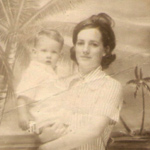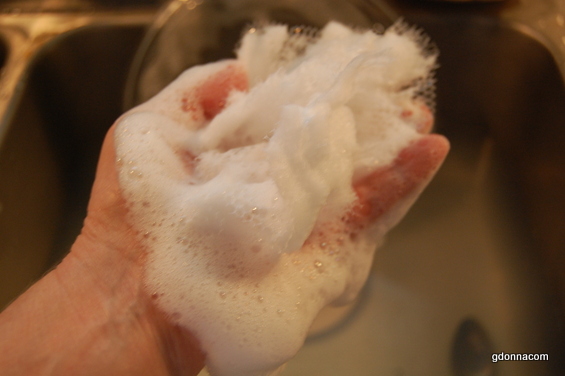
My husband knows I have this thing about soap and chairs. I always want enough chairs in the house for everyone to have a place to sit.
And soap, well that is something that I have spent a lot of time testing and researching, at least before we disconnected from the internet.
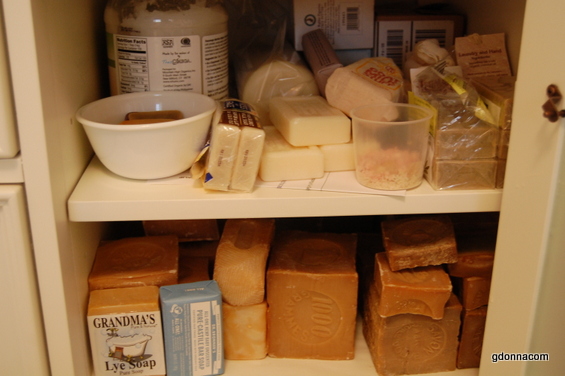
This is one of my soap stashes. For some reason the older I get the more in a rush I get to find the perfect soap before I leave my earthly tent behind. I have the makings to make soap but I just want to find that one perfect soap to purchase.
There is a lot that I do not know about soap but then there is a lot that I do know about soap. I have researched just about everything there is out there how soap is made and how when fat and lye are combined in proper proportions, a chemical reaction called saponification takes place to neutralize the lye and the end result is soap with glycerin. I figured one day that I would get a reply from the internet that you have reached the end of the internet! 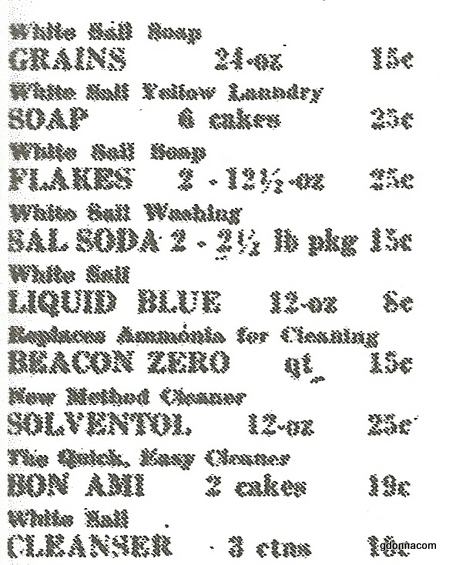
an ad out of a 1943 newspaper...
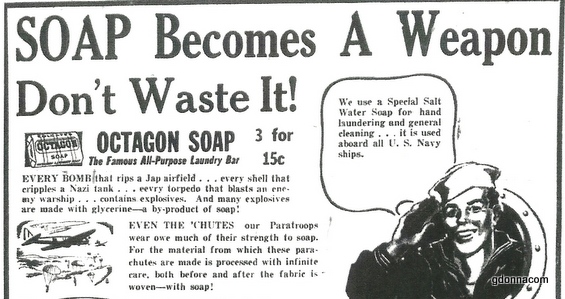
Another ad out of 1943 Newspaper
The recent WW2 rationing we are currently doing for a year has brought me back to soap again. The soap used in the 1940's was quite a bit different than we have today. There were soap cakes, flake soap, bar soap, granulated soap and new synthetic soaps were coming in to the market. During this time period of 1943 we are doing our history experiment most folks in our area used what they had always used and that was real soap with the glycerin still in the soap. Glycerin was used during the war to make explosives and ads were asking people to not waste the soap.
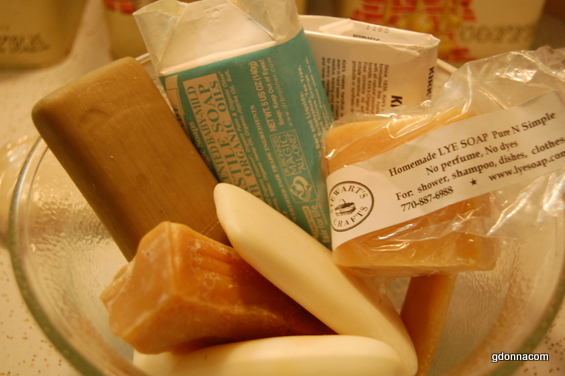
My obsession with soap started when my husband developed psoriasis, as I have mentioned in a past article. I wanted to heal his skin and rid him of this problem and I started searching all around the world for the most perfect soap and I have found some really nice soaps but still not a perfect soap, just close.
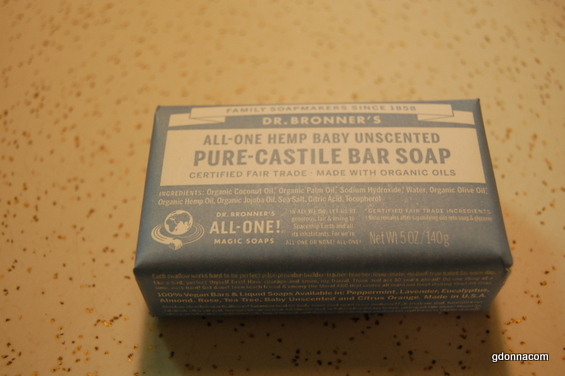
I have been looking for the soap with the least ingredients which I have found several and many made the old way but I have to order the really good soap and it gets very expensive. The most simple soaps I always go back to is simple soap I can buy at the local grocery store. Dr. Bronners is a soap we can purchase at the store. Other good soaps I like that we have to order are the French soaps traditional and milled and the middle east olive oil soaps.
Since we are doing the living like 1943 experiment I am trying to stay with the soaps that were made the very old way. At this time I am washing my hair with soap and I am mostly using Dr. Bronners baby bar followed with a simple vinegar or lemon rinse. For lemon I use one teaspoon freshly squeezed lemon into one cup of water, pour over my hair after I shampoo and rinse the shampoo out. Pour the lemon solution on my hair, toss it around then rinse it out. For the vinegar rinse I use the same formula as the lemon. Just make sure to not get the lemon or vinegar rinse in your eyes or it might sting. Even the soap will sting your eyes so just use common sense. We also use Grandmas Lye soap we can get at our ace hardware store or cracker barrel. Either is good soap.
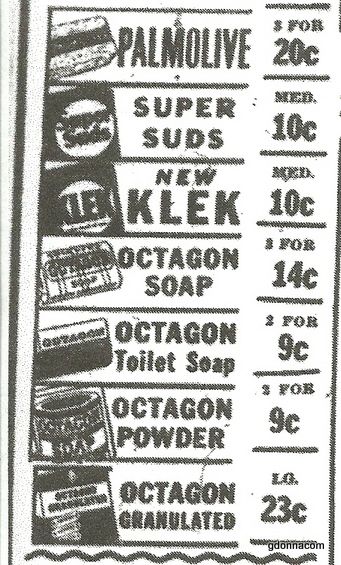
an ad in 1943
All I know is synthetic soap has way too many ingredients in it to understand and I highly advise anyone to research the history of soap. As the timeline moves through time you get a feeling that we have just been lab rats as they developed new synthetic goods.
What I can say is most of the soap we have in our house is made the old way and as simple as we can find. We bathe with it, wash our clothes with it, wash our hair, wash our dishes, mop our floors, clean our windows, wash our dogs, wash our car with old fashioned bar soap.
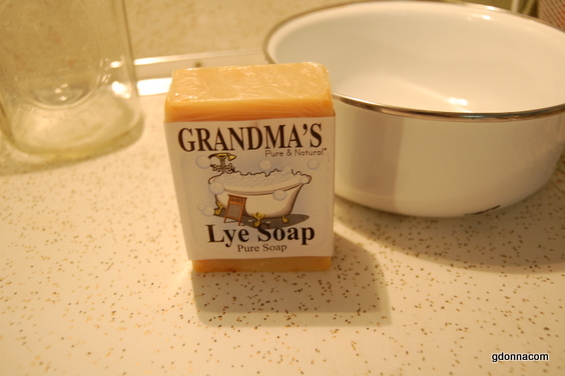
There a are lot of recipes and concoctions out there for laundry, dish and other things because for some reason people feel they need a liquid soap. I am not sure why that is when if fact all you need is bar soap made the old way. You can grate it to make laundry soap using a simple formula equal parts, ¼ cup grated soap, ¼ cup washing soda, ¼ cup borax. Use about one tablespoon per load. Hot water will help to dissolve the soap when using it. To get whites real good and clean use very hot water. Agitate the clothes for a bit and then let them soak for about a half hour then finish washing them.
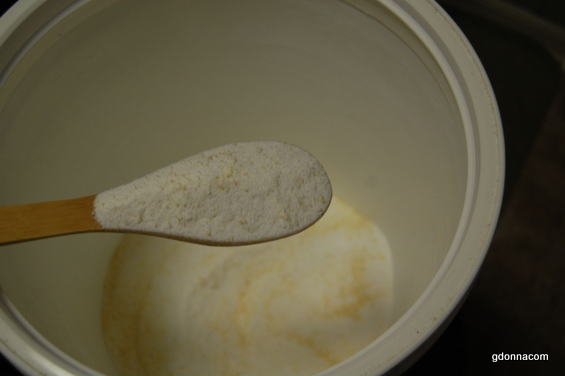
This is a large tub of laundry soap I made by grating good soap adding washing soda and borax. I know some people have an issue with borax but I do not when using it to make laundry soap. You can wash clothes with just soap if you have enough really hot water. Just don't use real hot water with your good clothes that will shrink. Just read the labels on all your clothes before washing.
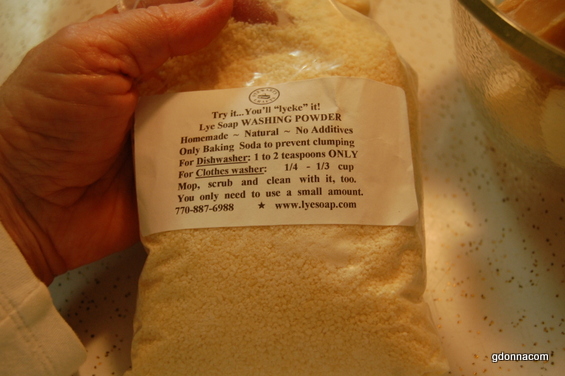
This photo pictured above is Lye soap washing powder that I order from lyesoap.com they do the grating for you.
A lot of people are hung up on lather. Real soap will lather but it will not suds very much when washing dishes or washing clothes. If you have a soap that suds you are using a detergent, a synthetic detergent.
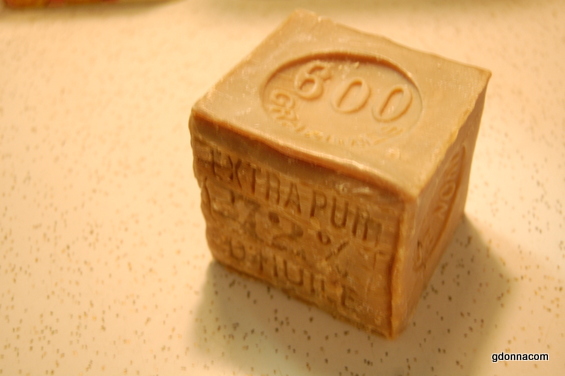
One of the traditional french soaps.
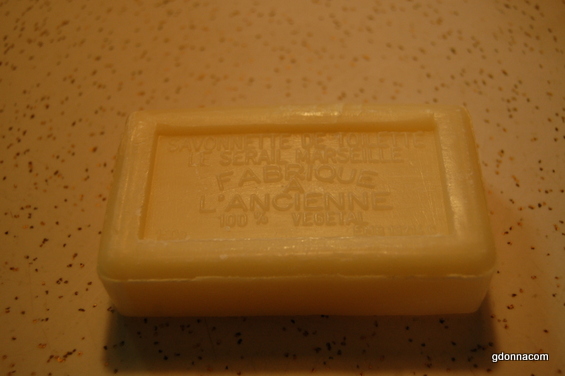
This is french milled soap, it is a lovely soap of coconut.
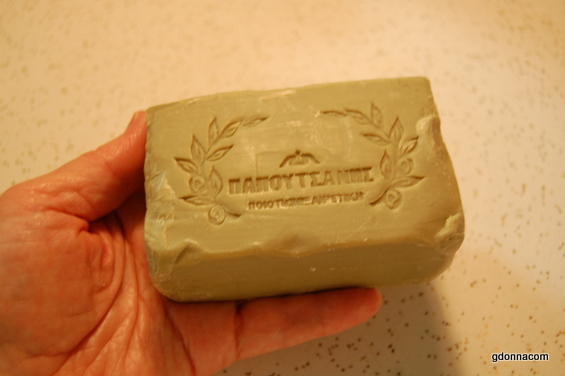
This is a middle eastern olive oil soap.
I feel we are bombarded with chemicals today and I know many people are trying their best to find good products that have few chemicals. Just go back to basics. It might not be what you are use to but you can adjust for the sake of your health.
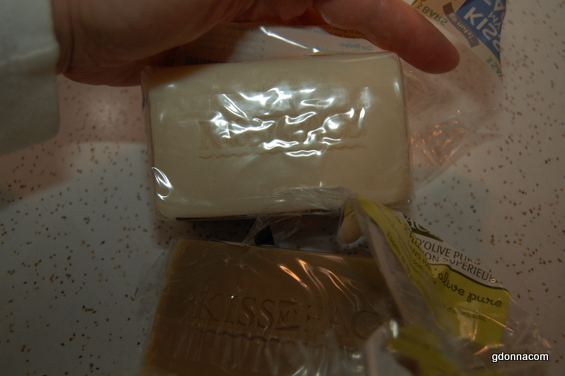
This is some new soap that I tried out, kiss my face olive oil soap unscented and coconut soap with a fragrance (mild).
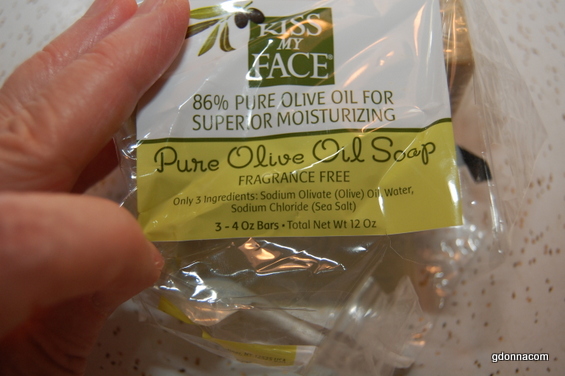
Here is the label on the olive oil....
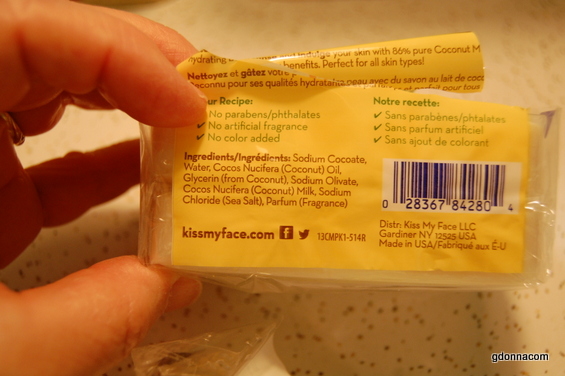
Here is the label on the coconut....
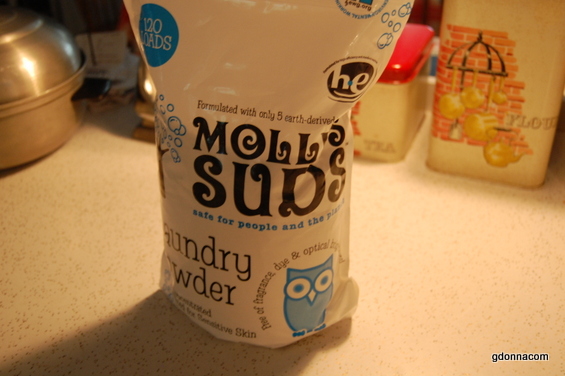
This is a good laundry soap that has a fantastic score on EWG...
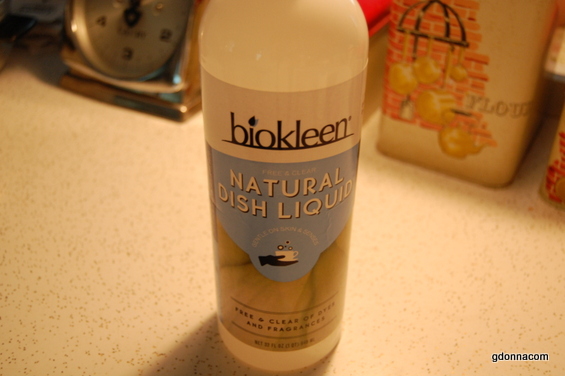
This is liquid dish soap that has a very good score on EWG.
One more thing, if you have some chaffing, clean the area real good with pure soap, rinse well and add a little corn starch on the area.
Take care, Grandma Donna
